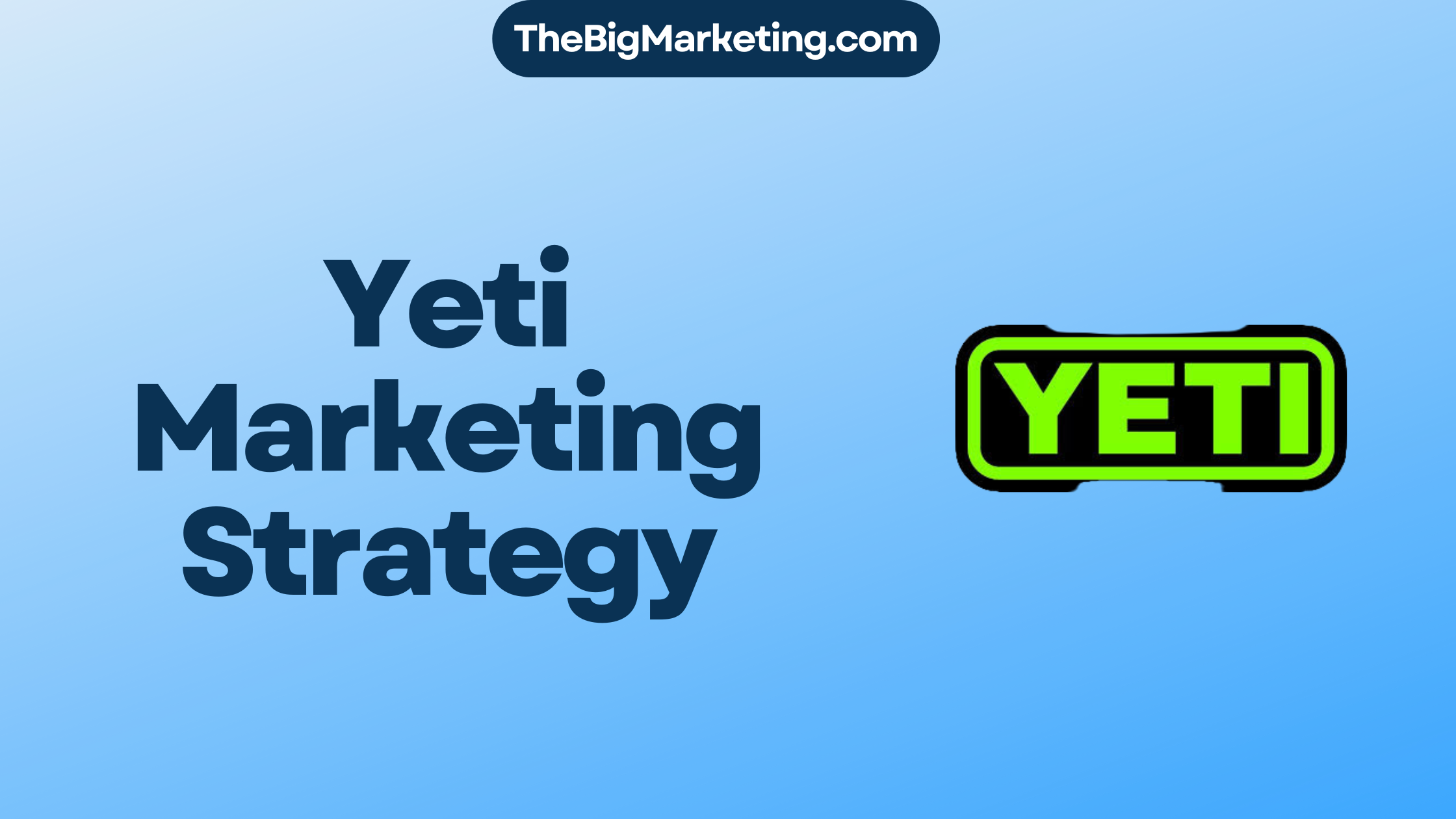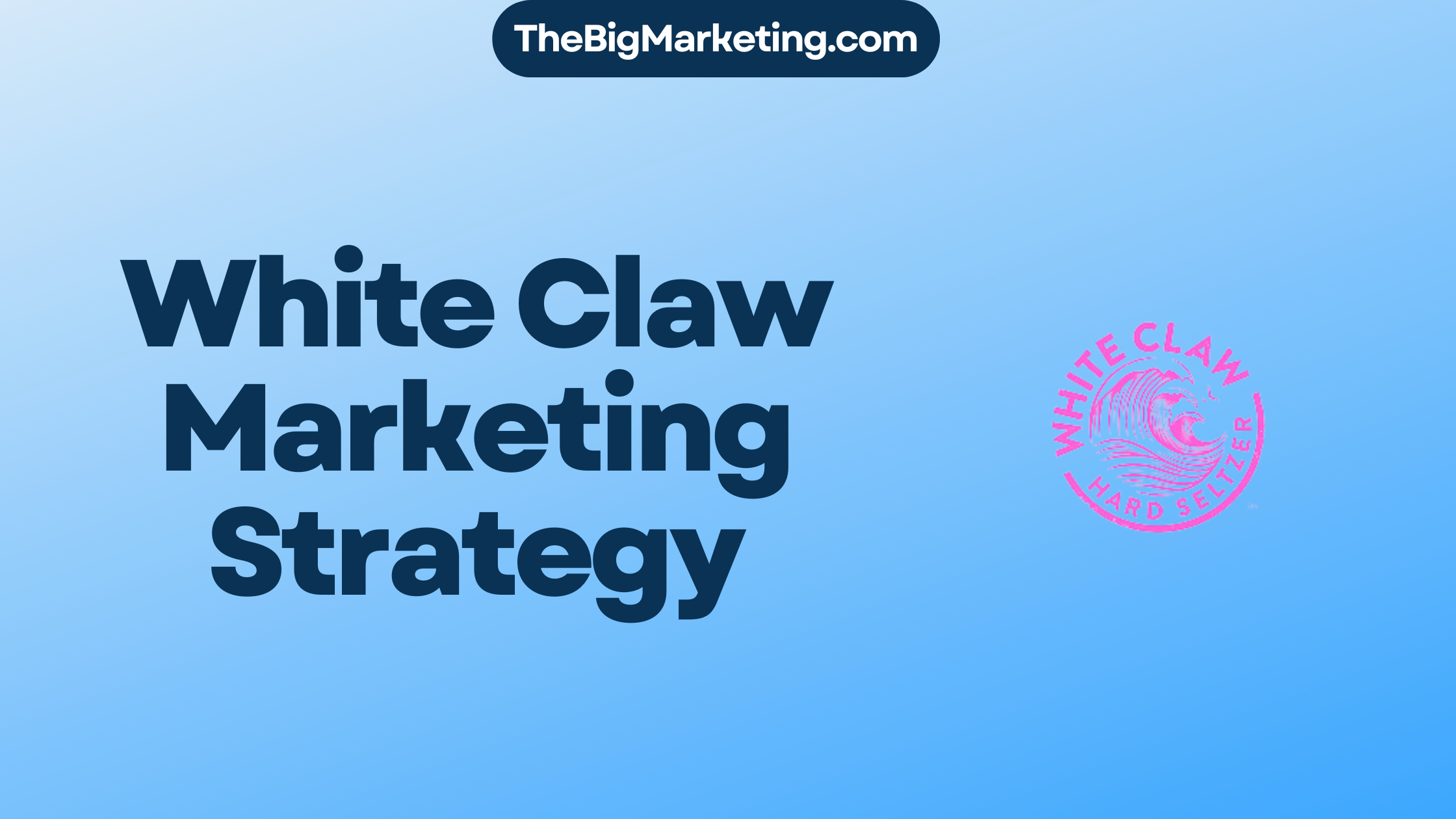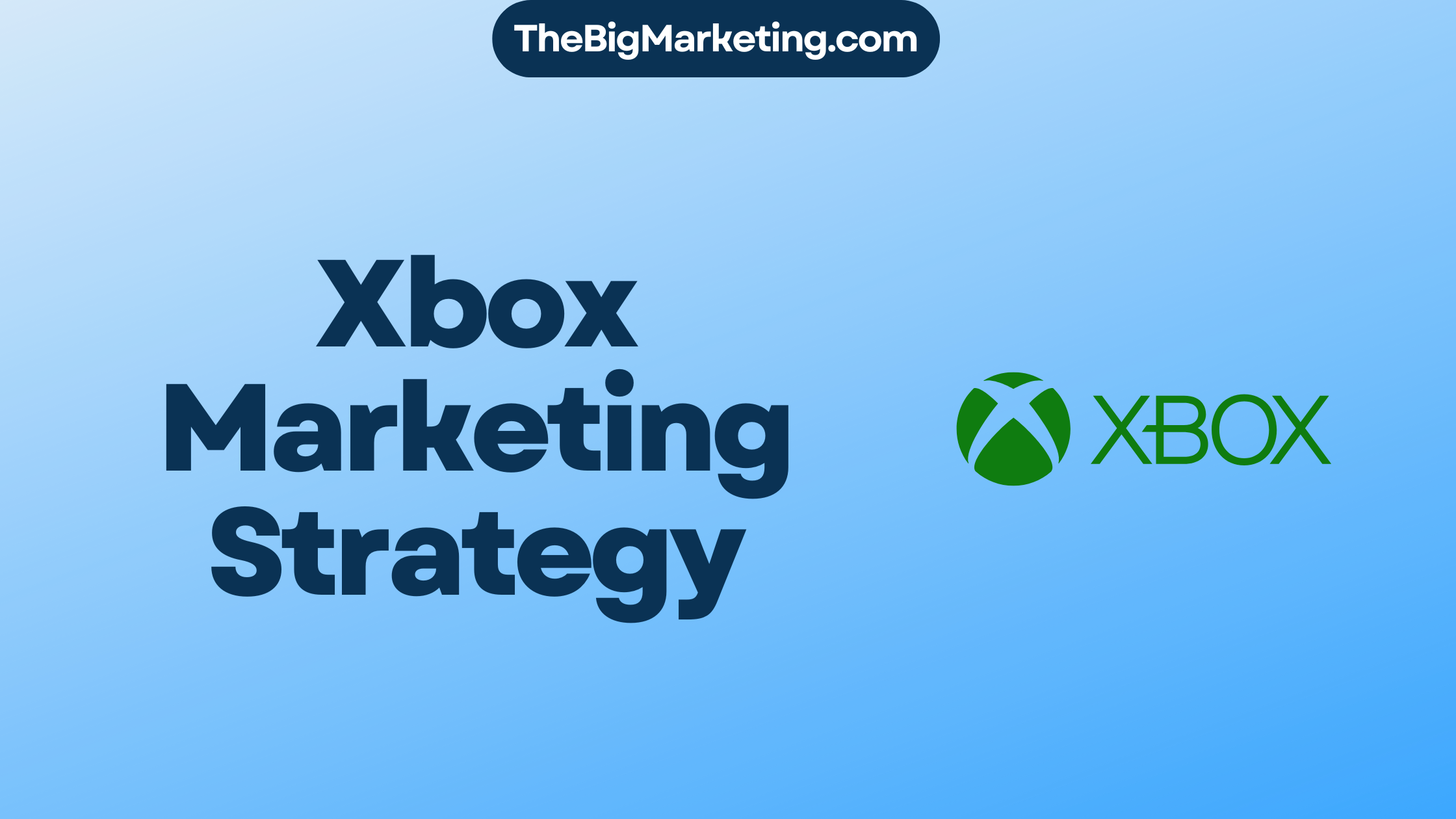Kroger, one of the largest supermarkets in the United States, is known for its commitment to providing fresh, affordable, and delicious food for all. As a leader in the retail industry, Kroger understands the importance of effective marketing strategies to connect with customers and drive brand growth. In this case study, we will delve into the intricacies of Kroger’s marketing strategy for 2024, exploring their advertising campaigns, brand promotion efforts, digital marketing tactics, customer engagement initiatives, and more.
Key Takeaways:
- Kroger is focusing on enhancing its digital presence and exploring virtual reality and augmented reality to provide immersive shopping experiences.
- Convenience and accessibility are key areas of focus for Kroger, with curbside pickup and on-demand delivery options available to cater to customer needs.
- Kroger is capitalizing on the growing health and wellness trend by offering a range of organic and sustainable products.
- Customer-centric innovations, such as personalized shopping experiences and experiential rewards, are at the core of Kroger’s marketing strategy.
- Sustainability and responsibility play a significant role in Kroger’s marketing efforts, as they prioritize eco-friendly practices and appeal to environmentally-conscious consumers.
About Kroger: A Grocery Giant
Kroger is an American retail company that has established itself as one of the largest supermarkets in the United States. Founded by Bernard Kroger in Cincinnati, Ohio, in 1883, Kroger has a rich history in the grocery industry. With a revenue of $121.16 billion in 2019, Kroger has consistently remained at the forefront of the retail market.
Kroger operates a diverse range of store formats, including supermarkets, superstores, and department stores. Their network of stores spans across the Midwestern and Southern regions of the United States, serving millions of customers with their high-quality products and services.
The success of Kroger stems from its dedication to providing fresh, affordable, and delicious food options to a wide customer base. As a grocery giant, Kroger continues to innovate and adapt to changing consumer needs and demands.
SWOT Analysis of Kroger
SWOT analysis is a valuable tool for evaluating a company’s strengths, weaknesses, opportunities, and threats. Let’s take a closer look at Kroger’s SWOT analysis:
Strengths
- Kroger offers a wide range of products and services to cater to diverse customer needs.
- The company has successfully executed effective marketing campaigns, resulting in a strong brand presence in the US.
- Kroger has a significant market share and is one of the largest supermarket chains in the country.
- The company has built a loyal customer base through its quality products and excellent customer service.
Weaknesses
- Kroger faces the challenge of high debt, which can impact its financial stability and future investments.
- The company is vulnerable to the impact of falling prices on certain products, affecting its profitability.
- Operating costs, such as labor and real estate expenses, can put pressure on Kroger’s margins.
Opportunities
- Kroger has the opportunity to expand its brand value by diversifying its product offerings and entering new markets.
- The company can enhance its digital platforms to provide a seamless online shopping experience and tap into the growing trend of e-commerce.
- There is a rising demand for health and wellness products, presenting an opportunity for Kroger to further cater to this market and strengthen its position.
Threats
- Kroger faces intense competition from other grocery retailers, both traditional and online.
- The rise of e-commerce stores and delivery services poses a threat to Kroger’s market share and customer retention.
- Changing consumer preferences and buying behaviors can impact Kroger’s sales and market positioning.
By conducting a comprehensive SWOT analysis, Kroger can identify areas for improvement, leverage its strengths, mitigate weaknesses, capitalize on opportunities, and navigate potential threats effectively.
| Strengths | Weaknesses | Opportunities | Threats | |
|---|---|---|---|---|
| Wide range of products and services | ✔ | |||
| Effective marketing campaigns | ✔ | |||
| Strong brand presence in the US | ✔ | |||
| High debt | ✔ | |||
| Falling prices on certain products | ✔ | |||
| Opportunity to expand brand value | ✔ | |||
| Enhancement of digital platforms | ✔ | |||
| Growing health and wellness trend | ✔ | |||
| Intense competition | ✔ | |||
| Rise of e-commerce stores | ✔ |
Digital Proliferation: A Key Trend in Kroger’s Marketing Strategy
In today’s digital age, it’s no surprise that digital marketing is a crucial component of Kroger’s overall marketing strategy. With a projected increase in online grocery sales by 40% in 2024, Kroger is capitalizing on the growing trend of digital platforms to engage customers and enhance their shopping experience.
Kroger understands the importance of staying ahead in the digital landscape to remain competitive in the market. They have invested in developing robust digital platforms that offer convenience, personalized recommendations, and seamless online shopping experiences. By leveraging the power of technology, Kroger aims to increase customer satisfaction and drive online grocery sales.
To take customer engagement to a whole new level, Kroger is exploring the potential of virtual reality (VR) and augmented reality (AR) in their marketing initiatives. VR and AR have the ability to create immersive and interactive shopping experiences, allowing customers to virtually explore products, visualize their purchases, and make informed decisions. By embracing these emerging technologies, Kroger aims to provide a unique and exciting shopping experience that sets them apart from their competitors.
Benefits of Digital Proliferation in Kroger’s Marketing Strategy
The integration of digital platforms, virtual reality, and augmented reality into Kroger’s marketing strategy offers several benefits:
- Enhanced customer convenience: By offering robust online shopping platforms, Kroger makes it easier for customers to explore products and make purchases from the comfort of their homes.
- Personalized shopping experiences: By leveraging data analytics and machine learning algorithms, Kroger can provide personalized recommendations and tailored offers based on customer preferences, enhancing customer satisfaction and loyalty.
- Immersive shopping experiences: The use of virtual reality and augmented reality allows customers to engage with products in a more immersive and interactive way, leading to a deeper connection with the brand and increased sales.
- Competitive advantage: By embracing digital technologies, Kroger can differentiate itself from competitors and position itself as a leader in the digital grocery space.
Comparison of Online Grocery Sales in 2023 and Projected Sales in 2024
| Online Grocery Sales 2023 (in billions) | Projected Online Grocery Sales 2024 (in billions) | |
|---|---|---|
| Kroger | 2.5 | 3.5 |
| Competitor A | 1.8 | 2.2 |
| Competitor B | 3.0 | 3.8 |
Source: Market Research Analysis
As seen in the table above, Kroger’s projected online grocery sales for 2024 demonstrate significant growth compared to the previous year. This highlights the success of Kroger’s digital marketing efforts and their ability to adapt to changing consumer behaviors and market trends.
Convenience and Accessibility: Meeting Customer Needs
Kroger understands the importance of convenience and accessibility in attracting and retaining customers. In today’s fast-paced world, consumers are seeking shopping experiences that fit seamlessly into their busy lives. Kroger has embraced this demand by introducing innovative services such as curbside pickup and on-demand delivery.
With curbside pickup, customers can conveniently place their grocery orders online and pick them up at a designated location without ever leaving their cars. This option saves them time and eliminates the hassle of navigating through crowded aisles. Additionally, Kroger’s on-demand delivery service provides customers with the flexibility to have their groceries delivered directly to their doorstep, making grocery shopping more convenient than ever.
Kroger’s commitment to customer satisfaction is evident in its dedication to meeting the evolving needs of its convenience-driven consumer base. By offering these convenient services, Kroger aims to enhance the overall shopping experience and provide greater accessibility for all customers, including those with limited mobility or busy schedules.
Health and Wellness Focus: Targeting a Growing Market
The health and wellness trend is on the rise, and Kroger is capitalizing on this market. They offer a range of organic and natural products under their Simple Truth brand. By expanding their product range and creating dedicated sections for health and wellness products, Kroger aims to attract health-conscious consumers and tap into the growing demand for sustainable products.
Health-conscious consumers are increasingly seeking out organic and natural food options. Kroger recognizes this demand and has responded by curating a selection of high-quality, sustainably sourced products within their stores. The Kroger organic food market offers a diverse range of fresh produce, pantry staples, and specialty items that cater to customers’ health and sustainability preferences.
Under the Simple Truth brand, Kroger provides a comprehensive range of organic and natural products that are free from artificial additives, preservatives, and genetically modified ingredients. This commitment to offering sustainable products aligns with the values of health-conscious customers who prioritize nourishing their bodies and reducing their impact on the environment.
By creating dedicated sections within their stores for health and wellness products, Kroger makes it easier for customers to find the products that meet their dietary and lifestyle needs. These sections are thoughtfully organized and feature a wide variety of items, including organic fruits and vegetables, free-range meats, plant-based alternatives, and eco-friendly household products.
Benefits of Kroger’s Health and Wellness Focus
| Benefits | Description |
|---|---|
| Convenience | Kroger provides a one-stop shop for health-conscious consumers, making it convenient to find a wide range of organic and natural products in one place. |
| Quality Assurance | The Simple Truth brand guarantees the highest standards of quality, ensuring that customers can trust the products they purchase. |
| Sustainability | Kroger’s focus on sustainable products supports environmental responsibility and helps customers make more eco-friendly choices. |
| Varied Selection | The health and wellness sections in Kroger stores offer a diverse array of options, catering to various dietary preferences and restrictions. |
| Educational Resources | Kroger provides educational resources and promotes healthy living through informative signage, recipe ideas, and wellness events. |
With the Kroger organic food market and their commitment to offering sustainable products, Kroger has positioned itself as a go-to destination for health-conscious consumers. By continually innovating and expanding their health and wellness offerings, Kroger strives to meet the evolving needs of their customers and make healthy choices more accessible to all.
Customer-Centric Innovations: Enhancing the Shopping Experience
Kroger is committed to providing customer-centric innovations to enhance the shopping experience. They understand that personalized shopping experiences are key to meeting the evolving needs of their customers. By leveraging machine learning algorithms, Kroger is able to analyze customer data and preferences to offer personalized offers and recommendations.
But Kroger takes it a step further. They believe that shopping should be more than just transactional. That’s why they offer experiential rewards through gamified challenges and exclusive events. By participating in these activities, customers feel a sense of community and enjoy a deeper engagement with the Kroger brand.
Additionally, Kroger’s loyalty programs play a vital role in enhancing the shopping experience. Through their loyalty programs, customers can earn rewards and benefits that are tailored to their individual preferences. This not only fosters customer loyalty but also encourages repeat purchases and drives customer satisfaction.
Overall, Kroger’s customer-centric innovations, driven by personalized shopping experiences, machine learning algorithms, experiential rewards, and loyalty programs, are designed to make every shopping trip memorable and enjoyable for their customers.
Benefits of Kroger’s Customer-Centric Innovations
- Personalized offers and recommendations based on customer preferences
- Experiential rewards through gamified challenges and exclusive events
- Loyalty programs that provide tailored rewards and benefits
- Enhanced customer satisfaction and loyalty
- A sense of community and deeper engagement with the Kroger brand
Sustainability and Responsibility: A Key Focus Area
Kroger recognizes the importance of sustainability and responsibility in today’s market. As a leading American retail company, Kroger is committed to making a positive impact on the environment and society as a whole. By prioritizing sustainable practices across their supply chain and integrating eco-friendly initiatives into their marketing strategies, Kroger strives to lead the way in sustainable retail.
One of Kroger’s key focuses is on offering sustainable products to their customers. They understand the growing demand for environmentally-friendly options and aim to provide a wide range of sustainable products that meet the needs of conscious consumers. Through partnerships with trusted suppliers, Kroger ensures that these products meet rigorous environmental standards, offering their customers peace of mind while making responsible shopping choices.
By embracing sustainable practices, Kroger aims to reduce their carbon footprint and minimize the impact of their operations on the environment. They have implemented various initiatives to achieve this, including energy-efficient store designs, waste reduction programs, and renewable energy sourcing. Kroger also actively promotes recycling and encourages customers to make sustainable choices through educational campaigns and in-store recycling programs.
Commitment to Environmental Responsibility
In addition to sustainable product offerings, Kroger continuously seeks innovative ways to minimize environmental impact. They invest in technology and practices that promote energy efficiency and waste reduction throughout their operations. By utilizing advanced logistics systems and optimizing transportation routes, Kroger aims to reduce fuel consumption and greenhouse gas emissions.
Furthermore, Kroger actively engages in partnerships and collaborations with environmental organizations, government agencies, and industry leaders to drive positive change. They participate in initiatives aimed at improving sustainability practices across the retail industry and work towards setting industry standards for environmental responsibility.
Transparent and Educative Approach
Kroger believes in transparent communication and strives to educate both their customers and employees about sustainable practices. Through their marketing efforts, Kroger raises awareness about the importance of environmental responsibility and encourages individuals to make sustainable choices. They provide information on product sourcing, ethical production processes, and the positive impact of sustainable shopping.
In-store, Kroger displays clear signage and labels to help customers identify sustainably sourced products. They also offer educational resources and workshops to empower customers to make informed decisions that align with their environmental values. By fostering a culture of sustainability and responsibility, Kroger aims to inspire positive change and make a lasting impact on society.
Collaboration for a Sustainable Future
Kroger understands that tackling sustainability challenges requires collaboration and partnerships with various stakeholders. They actively engage with suppliers, communities, and industry organizations to drive collective action towards a more sustainable future. By working together, Kroger aims to make significant progress in areas such as responsible sourcing, waste reduction, and carbon neutrality.
As Kroger continues to prioritize sustainability and responsibility, they remain committed to improving their practices and expanding their efforts. Through their dedication to sustainable retail, Kroger aims to not only meet the demands of environmentally-conscious consumers but also inspire change throughout the industry.
| Kroger’s Sustainable Initiatives | |
|---|---|
| 1 | Prioritizing sustainable practices across the supply chain |
| 2 | Offering a wide range of sustainable products |
| 3 | Implementing energy-efficient store designs |
| 4 | Reducing waste through recycling and waste reduction programs |
| 5 | Investing in renewable energy sourcing |
| 6 | Collaborating with environmental organizations and industry leaders |
| 7 | Educating customers and employees about sustainability |
| 8 | Promoting responsible sourcing and production processes |
| 9 | Driving collaborative action for a sustainable future |
Conclusion
In conclusion, Kroger’s marketing strategy for 2024 underscores its commitment to driving success in an ever-evolving retail industry. By embracing digital proliferation, Kroger aims to capitalize on the increasing trend of online grocery sales, leveraging digital platforms, virtual reality, and augmented reality to create immersive and interactive shopping experiences for its customers.
Kroger also recognizes the importance of convenience and accessibility in meeting customer needs. By offering curbside pickup services and on-demand delivery options, Kroger aims to provide a seamless and convenient shopping experience for its convenience-driven consumer base, ultimately enhancing customer satisfaction.
Furthermore, Kroger’s focus on the health and wellness market reflects its understanding of shifting customer behaviors. With a wide range of organic and sustainable products, Kroger aims to attract health-conscious consumers and tap into the growing demand for sustainable and eco-friendly options.
As market forecasts indicate substantial growth in online grocery sales and demand for sustainable products, Kroger is strategically positioned to capitalize on these opportunities. By staying ahead of retail industry trends, adopting customer-centric innovations, and demonstrating its commitment to sustainability, Kroger aims to drive brand affinity, increase sales, and shape the future of the retail industry.
FAQ
What is Kroger’s marketing strategy for 2024?
Kroger’s marketing strategy for 2024 focuses on digital proliferation, convenience, health and wellness, customer-centric innovations, sustainability, and responsibility. They aim to stay ahead of shopper marketing trends and adapt to evolving consumer behaviors.
How is Kroger leveraging digital platforms in its marketing strategy?
Kroger is enhancing its digital platforms to cater to the projected 40% increase in online grocery sales in 2024. They are exploring the potential of virtual reality and augmented reality to create immersive and interactive shopping experiences for customers.
What convenience-driven services does Kroger offer?
Kroger offers curbside pickup services and on-demand delivery options to streamline the shopping process and meet the convenience needs of its customers.
Is Kroger targeting the health and wellness market?
Yes, Kroger is capitalizing on the growing health and wellness trend. They offer a range of organic and natural products under their Simple Truth brand and create dedicated sections for health-conscious consumers.
How does Kroger enhance the shopping experience for its customers?
Kroger leverages machine learning algorithms to personalize offers and recommendations for customers. They also offer experiential rewards through gamified challenges and exclusive events to engage customers on a deeper level.
Does Kroger prioritize sustainability in its marketing strategy?
Yes, Kroger prioritizes sustainability across its supply chain and integrates eco-friendly initiatives into its marketing strategies. They aim to build a stronger connection with environmentally-conscious consumers and establish themselves as a leader in sustainable retail.







